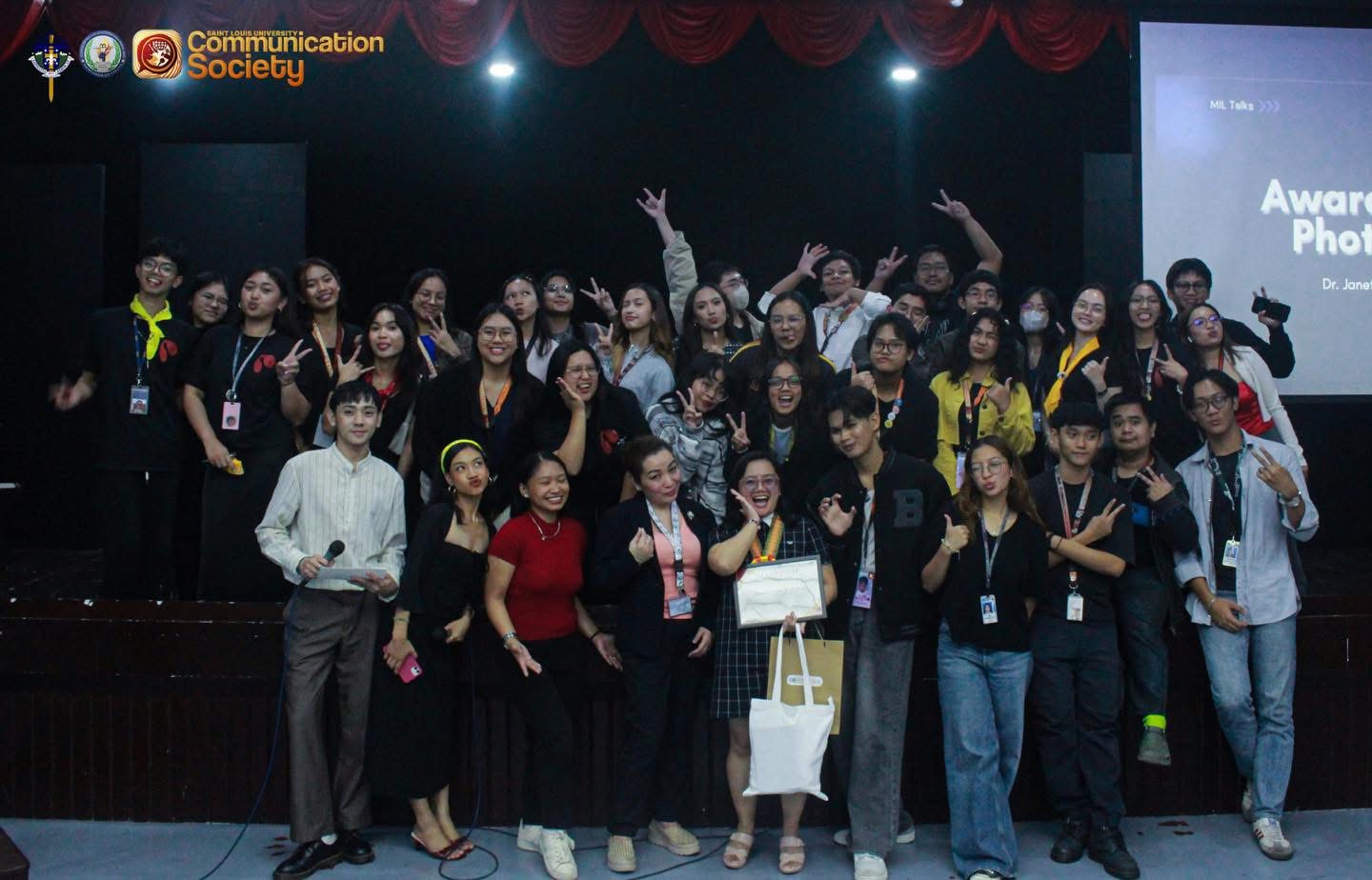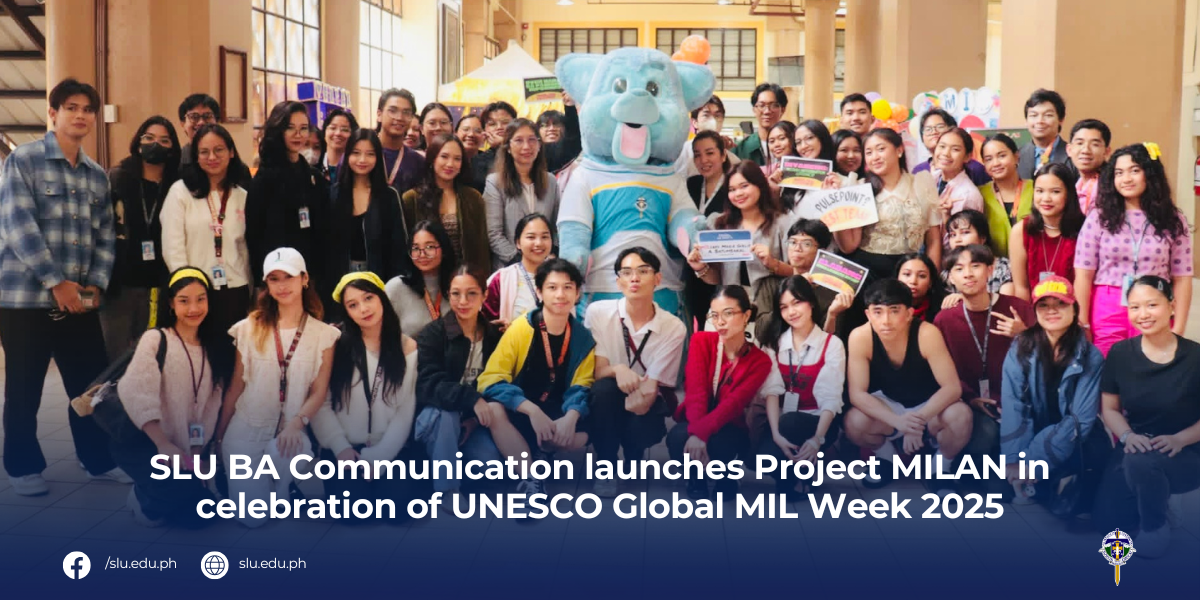The Bachelor of Arts in Communication students of Saint Louis University’s (SLU) School of Teacher Education and Liberal Arts (STELA), through the Communication Society (ComSoc), joined the celebration of UNESCO’s Global Media and Information Literacy (MIL) Week 2025 through the first phase of Project Media and Information Literacy Advocacy Network (MILAN) held on 20-22 October 2025 at the Diego Silang Building, SLU Main Campus.
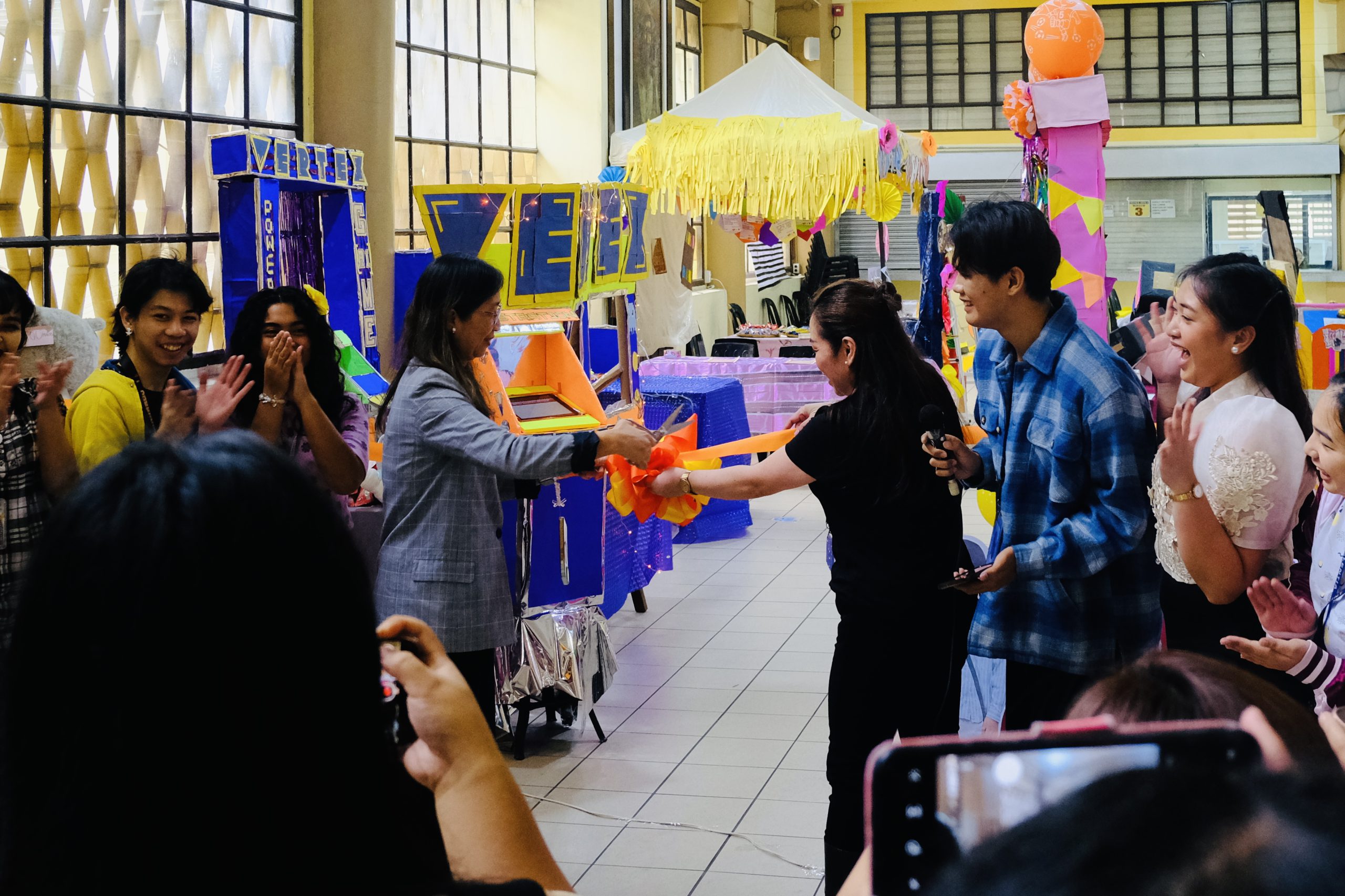
With Project MILAN’s theme, “Smart Citizens, Safe Communities: Strengthening MIL in Digital Spaces,” the in-campus activation followed a series of activities that helped students critically and ethically navigate the digital spaces, highlighting UNESCO’s theme, “Minds over AI – MIL in Digital Spaces.”
Project MILAN’s in-campus activation commenced through a ribbon-cutting ceremony with the presence of the Project MILAN Convener, Janet S. Tibaldo, LPT, PhD, along with the Department Head of Languages and Communication, Joselita M. Ferrer, LPT, PhD, and an appearance of NAVI, the official mascot of SLU.
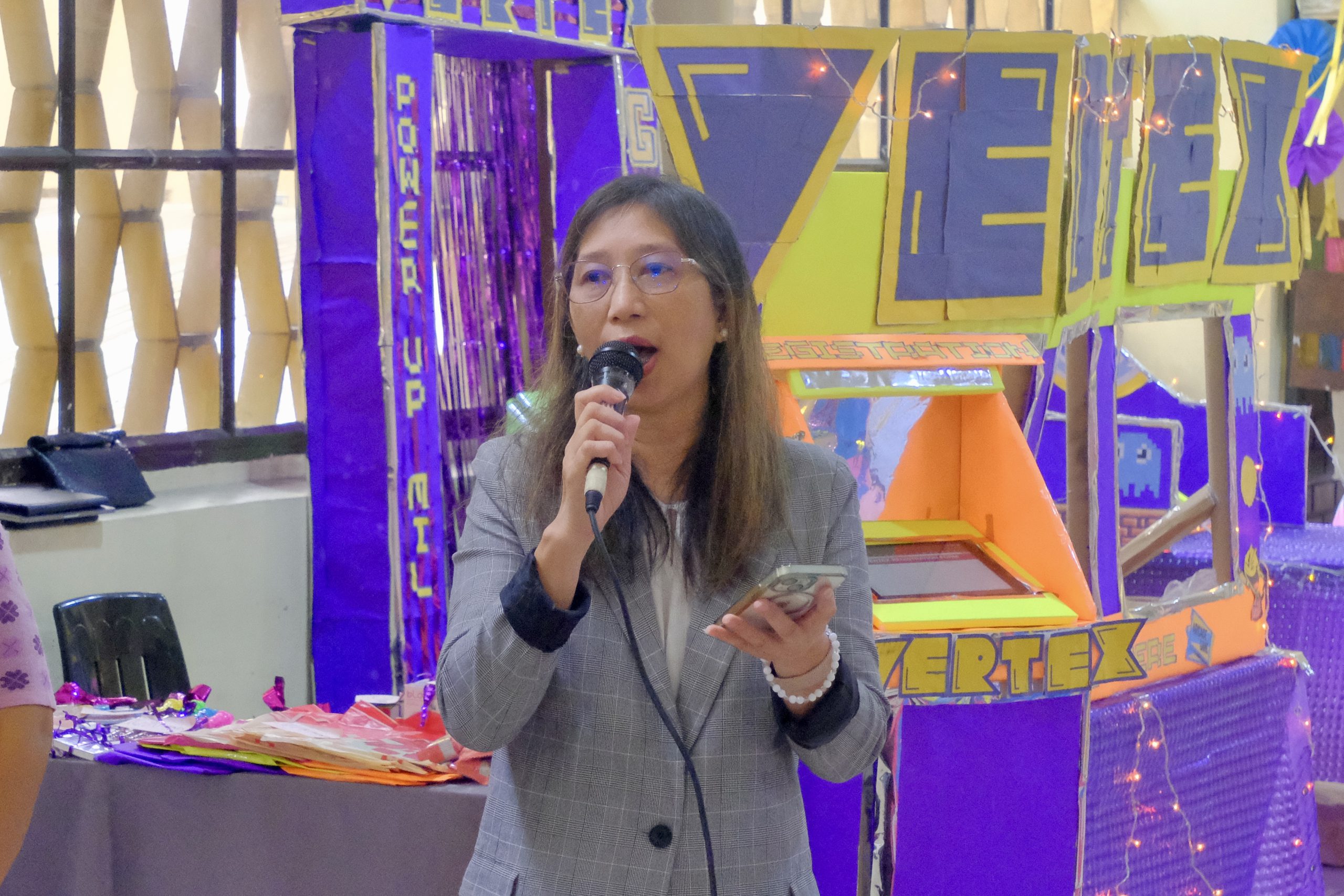
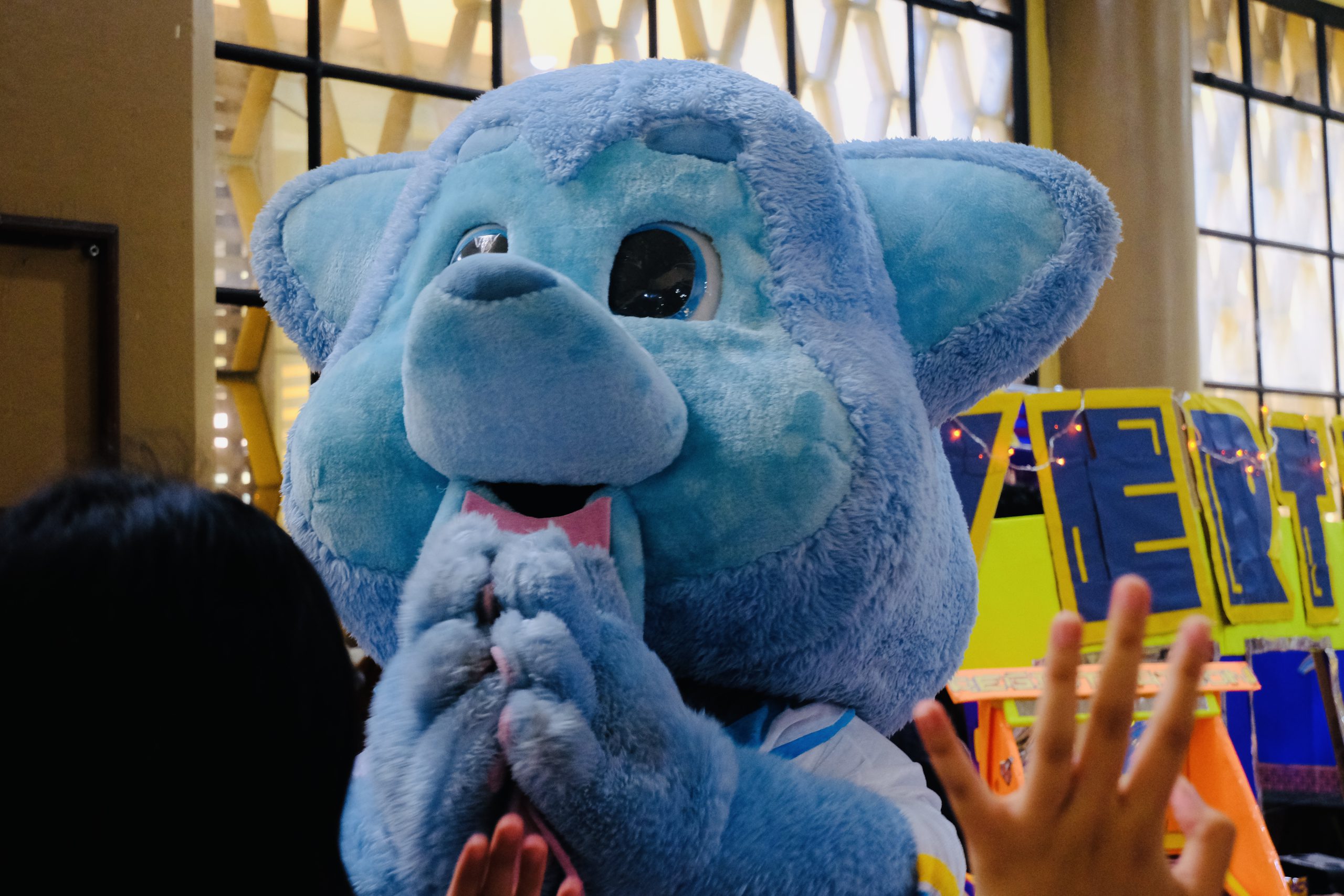
Through her opening speech, Dr. Ferrer commended the project’s goal of fostering responsible digital citizenship and empowering an informed and media-literate community. A total of six teams showcased their creative and vibrant booths at the Diego Silang Lobby. COMMveyors, Litrasync, MILE Blazers, MILyon, PulsePoint, and Vertex combined education and entertainment to cultivate Louisians’ MIL skills.
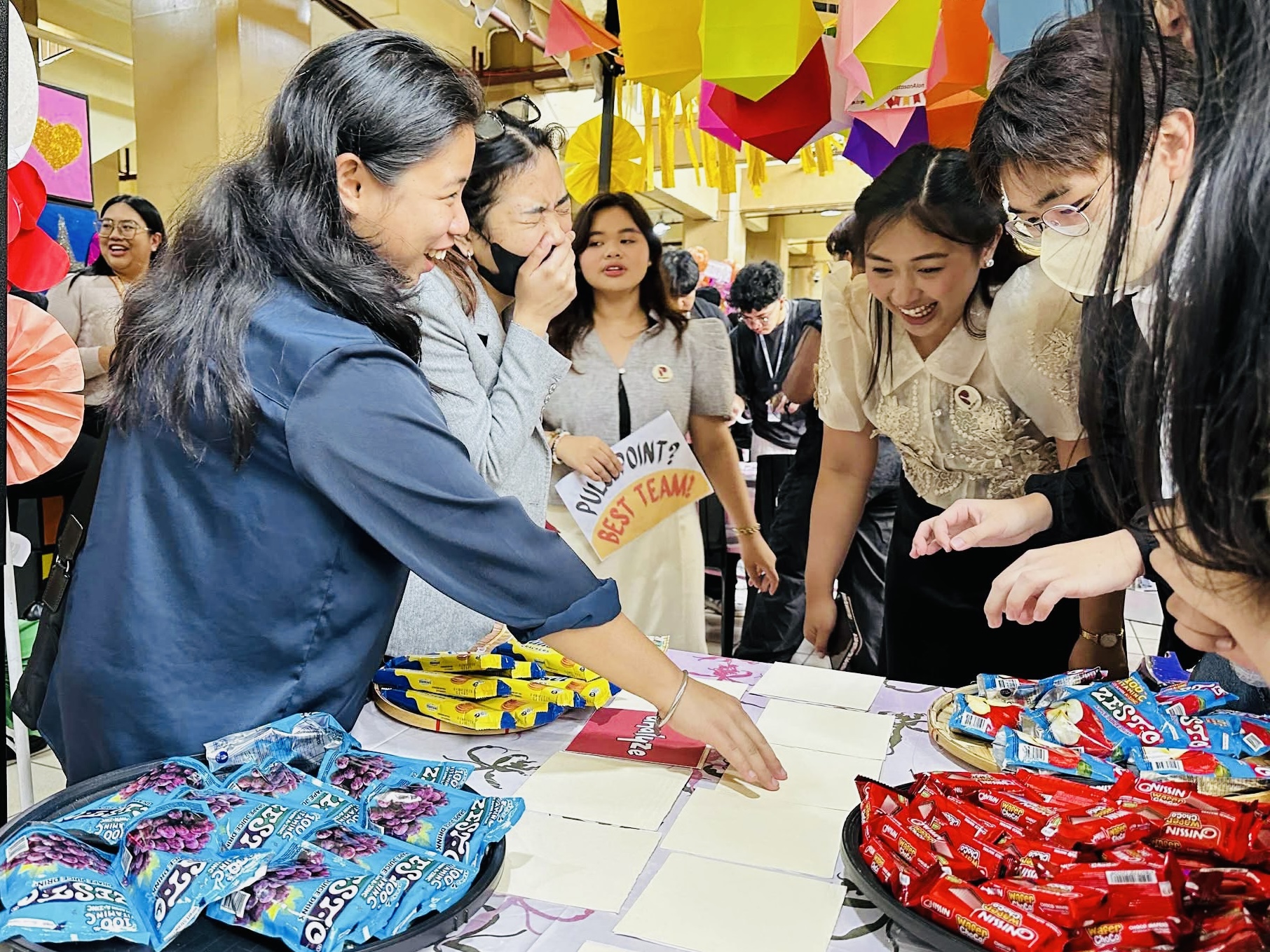
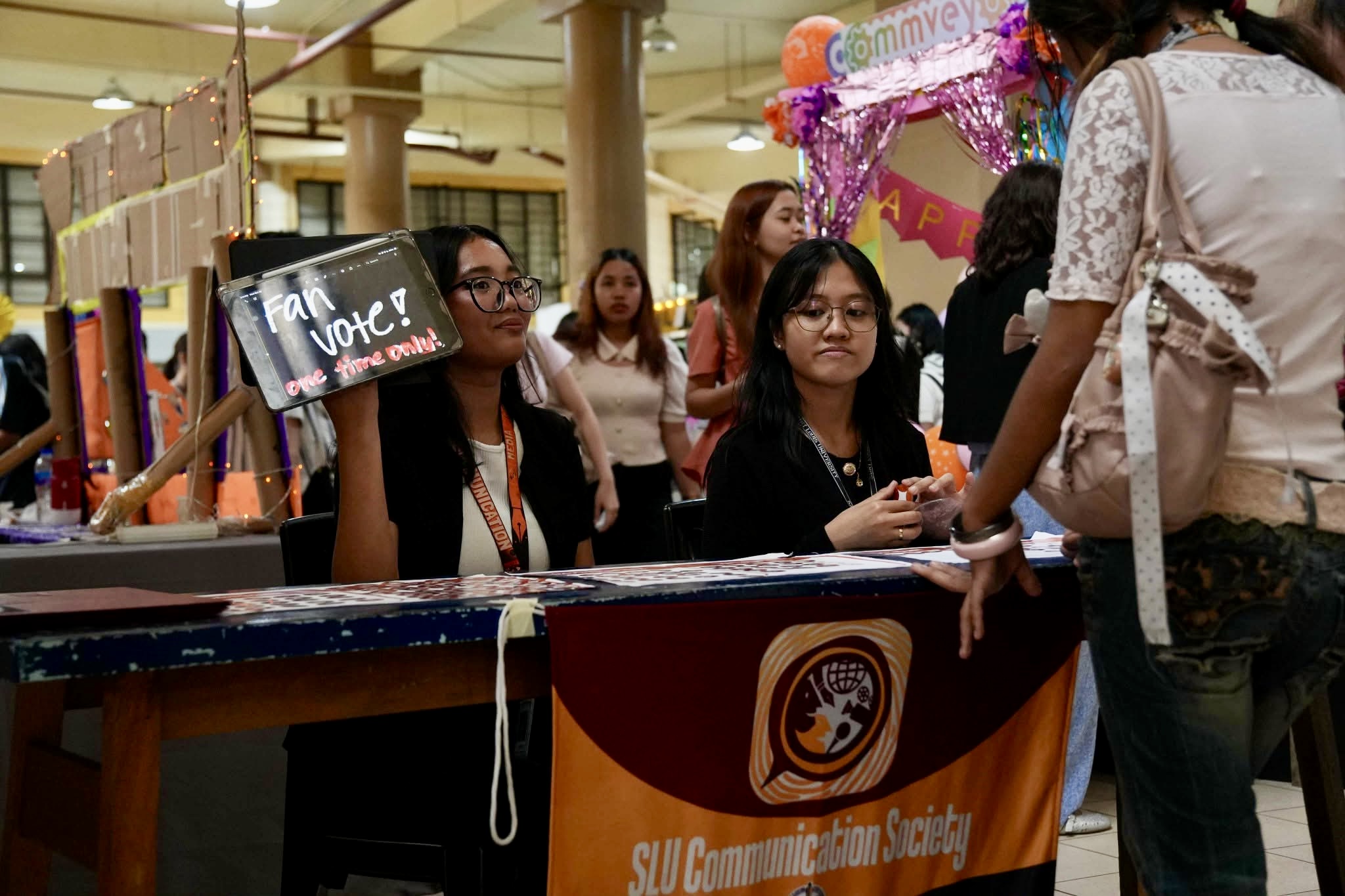
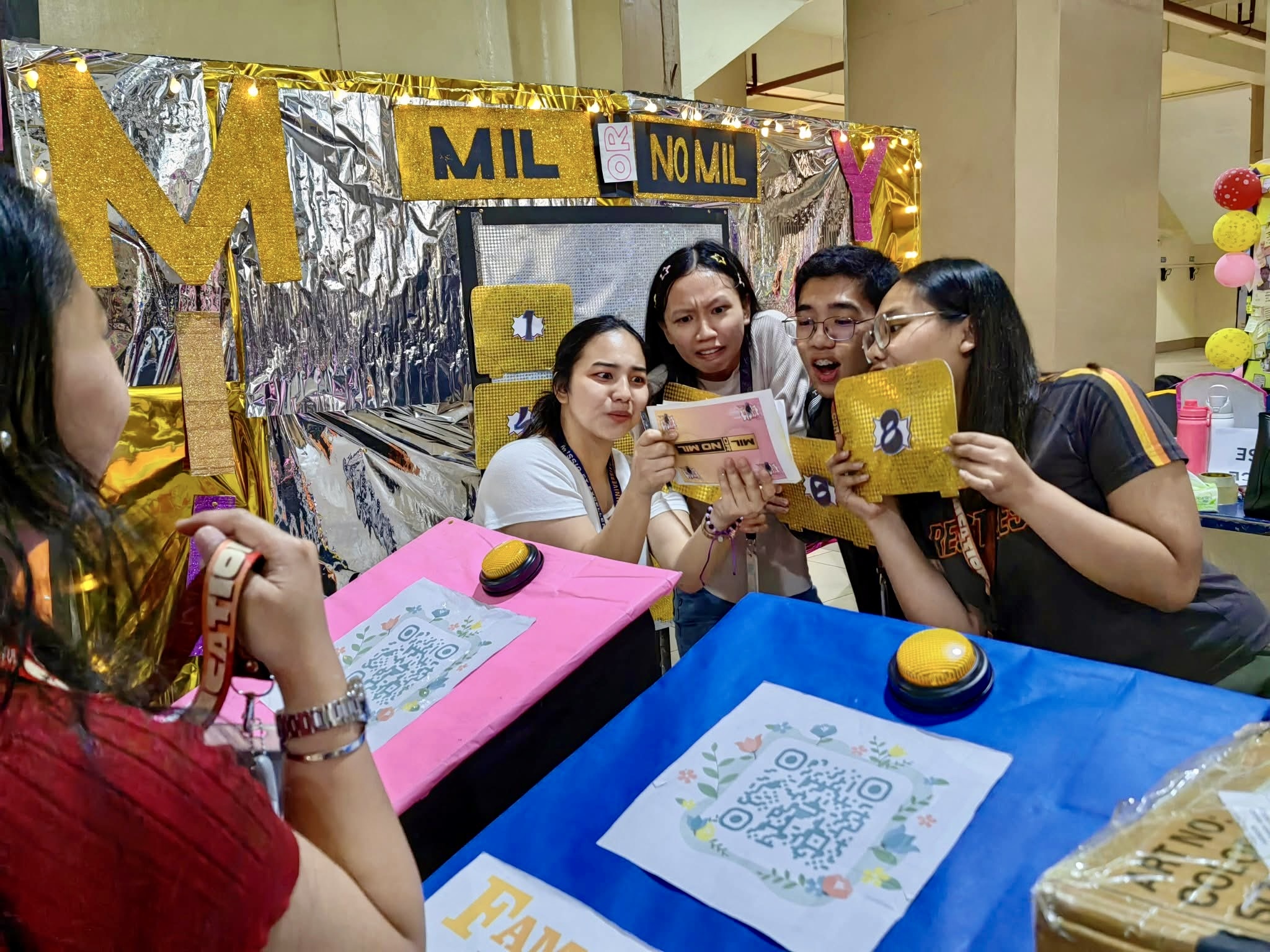
Following the ribbon-cutting ceremony of the booths, the Department of Languages and Communication (LangComm) Teaching Staff attended their full-day In-Service Training at the American Corner, Msgr. Charles Vath Building which Marco M. Polo, PhD an Associate Professor at the Communication and Journalism Department (CJD) and a Faculty Lecturer at the School of Governance, Public Service and Corporate Leadership at De La Salle University-Dasmarinas (DLSU-D) facilitated his lecture series with the theme, “Teaching Tomorrow: Integrating Cognitive Diversity and Intelligent Technology for Language and Communication Classrooms.”
Dr. Polo offered his knowledge and expertise on Seven Ways of Thinking to Teaching, Foundations of Thinking Styles, and Intelligent Technology for the Classroom which expounded the different teaching styles, AI-facilitated teaching approaches, and various modern teaching methods that the LangComm faculty can apply to their classes in fostering a more inclusive and conducive learning environment at the peak of digital education.
Spearheaded by Communication Management (COM 315) classes, the second day of Project MILAN offered an exclusive MIL Talks at the Perfecto Auditorium (P700) featuring speakers from inside and outside the university. Ms. Kaye Leah Sitchon, a 21st Doreen Gamboa Fernandez Food Writing awardee, content writer, and communication instructor, explored “AI, Media, and You: Building Critical Literacy for Agency.” In Ms. Sitchon’s lecture, she emphasized the importance of responsible and ethical utilization of Artificial Intelligence (AI) in the creation of original content for media and agencies in today’s 4th Industrial Revolution.
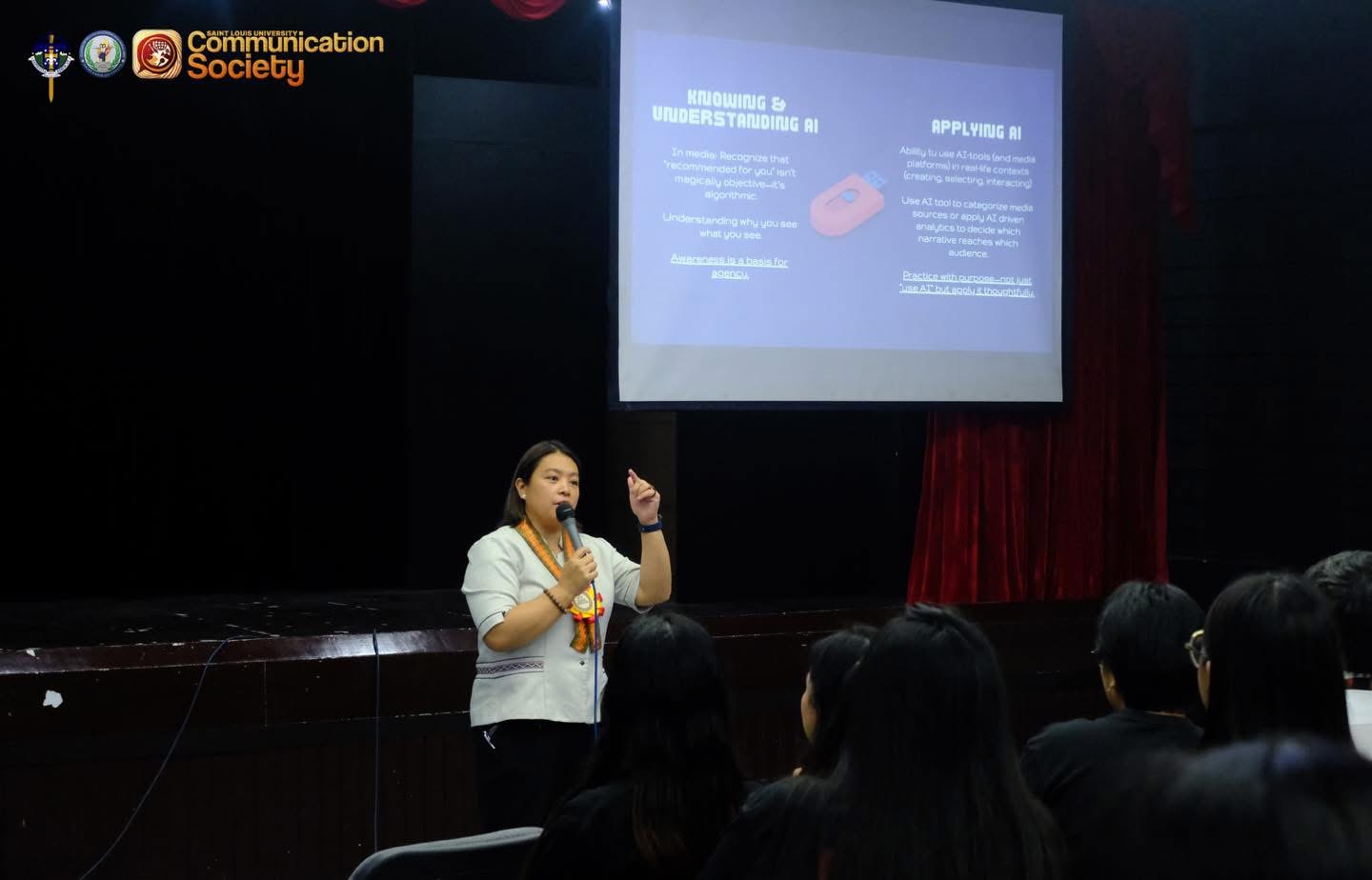
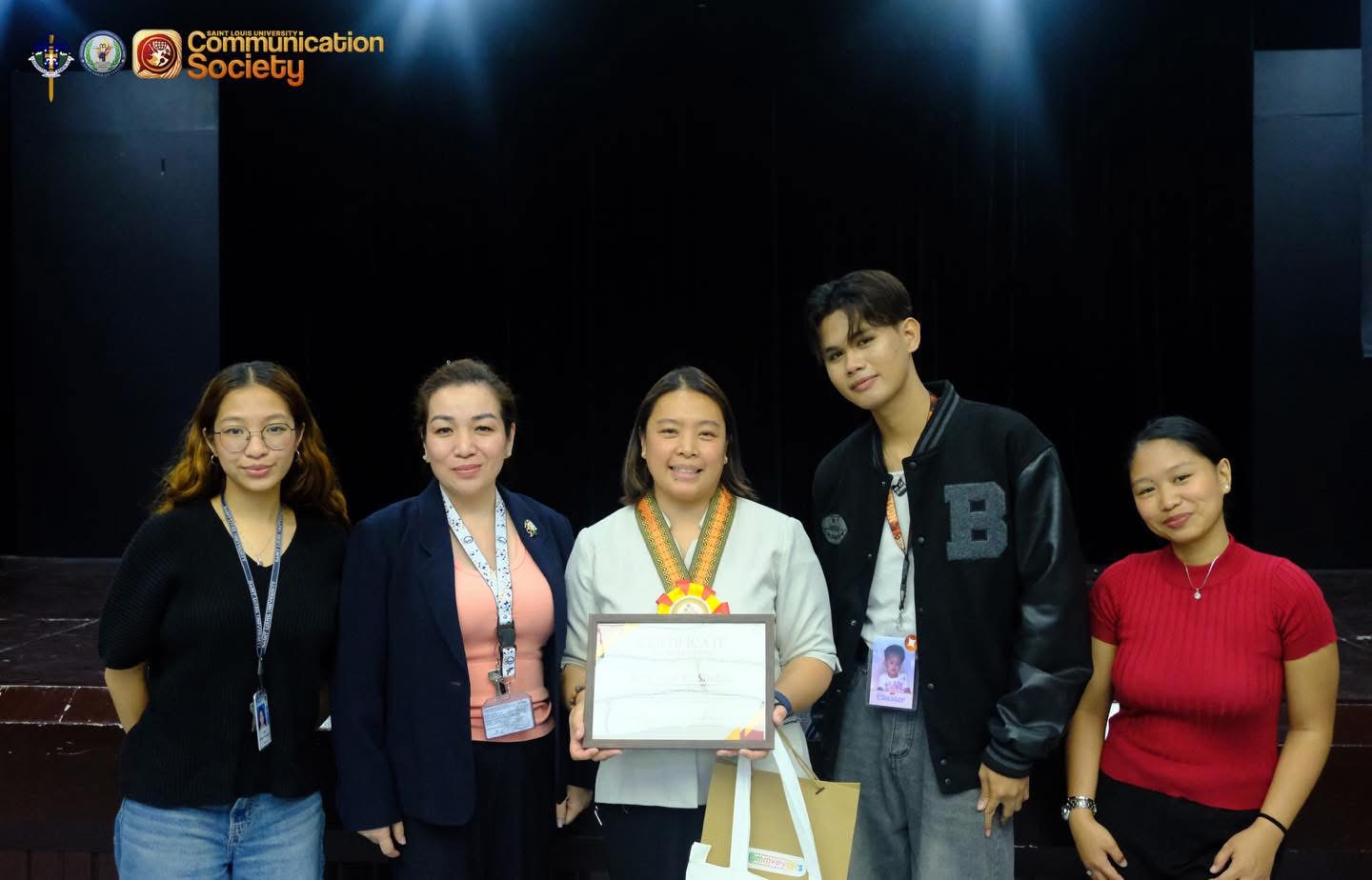
The second session of the lecture was then followed by Ms. Heather Ann Pulido, a Kankanaey-Ibaloi creative storyteller, 70th Carlos Palanca awardee, and co-founder of Cordillera-focused literary zine Ili Press. Ms. Pulido tackled “Zine-making: A Counterculture to AI Writing and AI Art,” which focused on the discourse of the role of AI in the creation of zines in today’s modern age, emphasizing that AI can never displace human input and individual creativity in producing diverse angles of zines. “No interest is too niche,” Ms. Pulido added, highlighting that zines have the potential to just be a creative outlet for anyone.
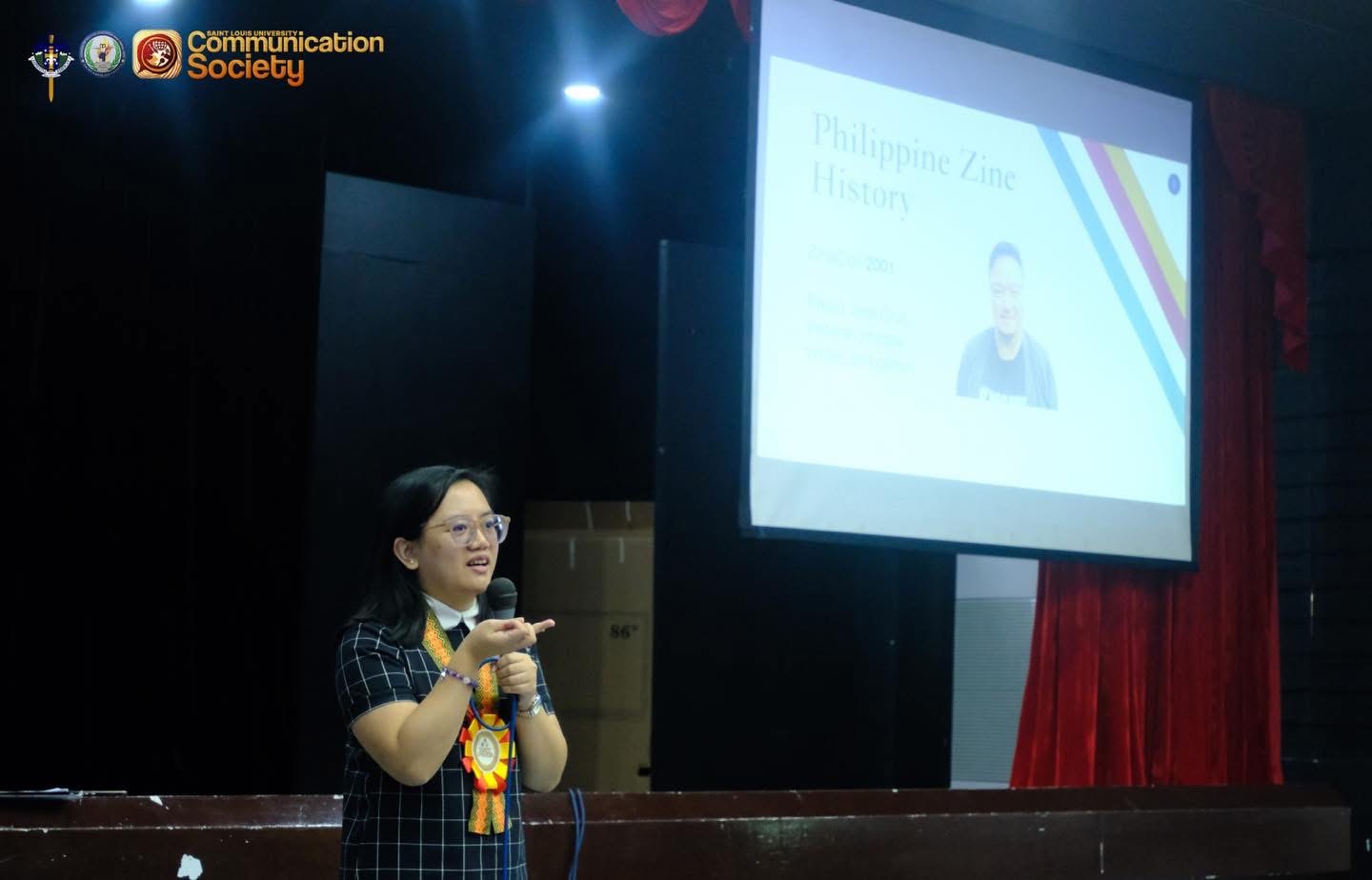
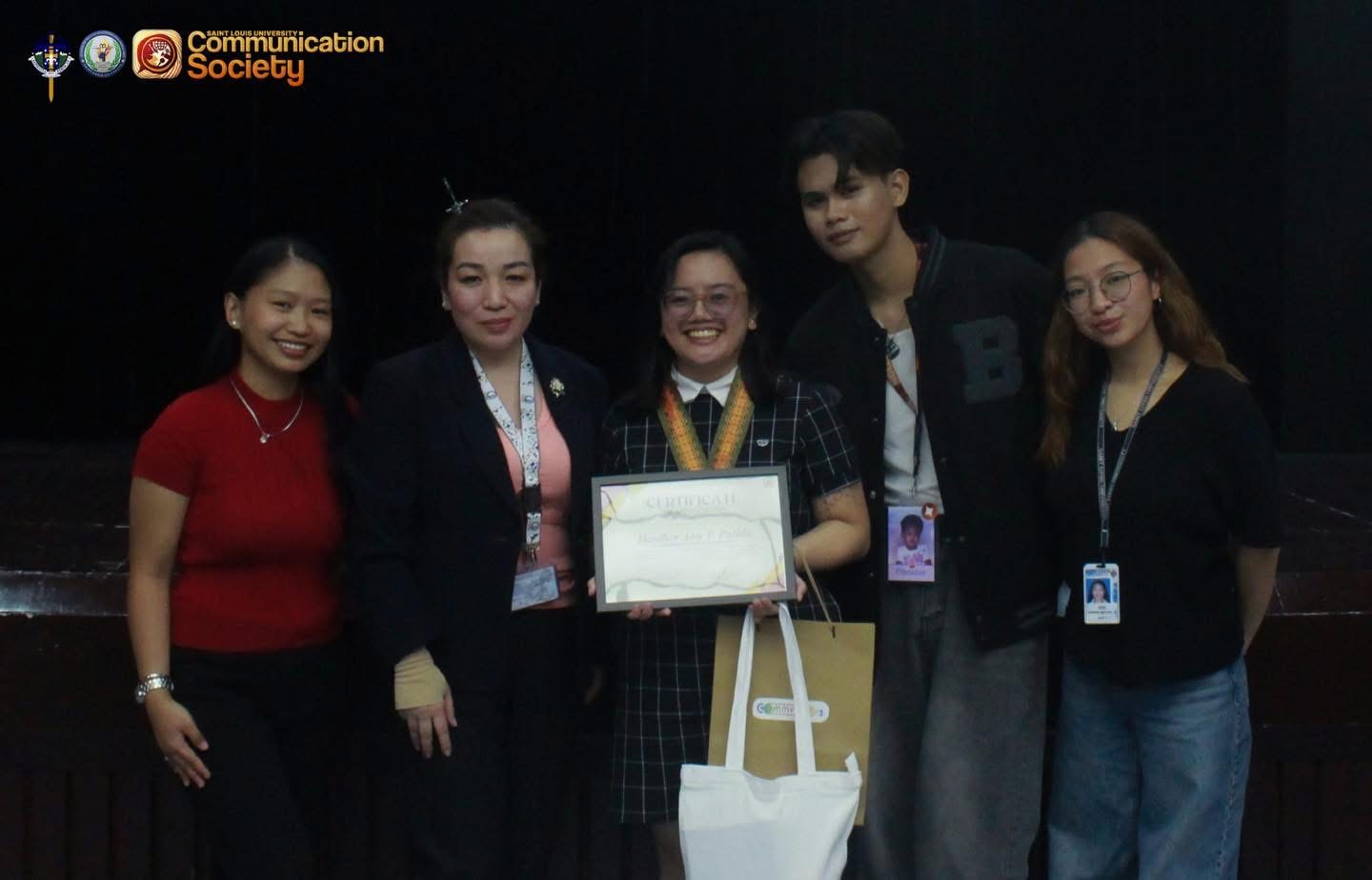
Project MILAN aims to further maximize the 2025 Global MIL Week Celebration through the MIL Summit, in collaboration with the City of Baguio Committee on Education, Councilor Vladimir Cayabas. The city-wide activation seeks to promote digital safety, critical engagement, and ethical use of AI by empowering both Private and Public Basic Education Teachers within the city as they serve as the cornerstones of society. This initiative is expected to be activated by Communication Management (COM 315) and Digital Learning Materials Development (COM 312) classes at the Baguio City Hall Multipurpose Hall on November 20, 2025
The project’s objectives align with SDG 4: Quality Education, SDG 8: Decent Work and Economic Growth, SDG 12: Responsible Consumption and Production, SDG 16: Peace, Justice, and Strong Institutions, and SDG 17: Partnership for the Goals. (Article by Francine Sophia Wayas and Jessamyne Tadeo, SLU Communication Society | Photos from SLU Communication Society)
